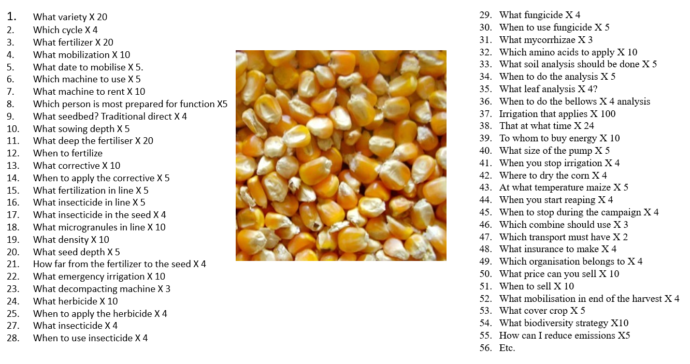The main reason for adopting sustainable precision agriculture (SPA) at Quinta da Cholda is due to the huge amount of decisions we must make throughout the campaign, which can be up to 500 alone.
How many of these will be right? How many will be wrong?
These decisions will lead us through very different paths if one decision or another is made. Farmer’s decision-making is usually based on historical, empirical knowledge. You can also copy it from another neighboring farmer or from someone who has good references.
Our goal today is to be able to introduce some support in making these decisions, as we have a wide range of factors that we often cannot assess. Past decisions also might not be adapted to some current contexts such as climate change or the variability of our soils.
The great challenge of precision agriculture is to provide the farmer with the ability to execute accurately and with the ability to record all the operations he has carried out throughout the campaign when they happened, the inputs that were used, etc. Also, the weather records throughout the year are valuable information for making future decisions based on the best solutions found and tested in the past. With the support of software and statistical analysis we now have the possibility to create production models adapted to both the variability of our soils and the products the market demands of us such as organoleptic qualities and industrial qualities of our product.
Also, a decision based on resource optimization will be decisive in environmental terms with the possibility of producing more quantity per unit of input, thus reducing the application of plant protection, energy and runtime. This optimization will have a very large impact on the level of CO2 and nitrous oxide emissions.
With all the data already collected, we are determining the factors that determine the yield of our crops and we are already able today to test the factors that increase productivity and those that can lead to production reductions.
We must continue to record and process all this data and with this accumulation of knowledge we can greatly reduce past wrong decisions and be assured of good decision making in the future.

